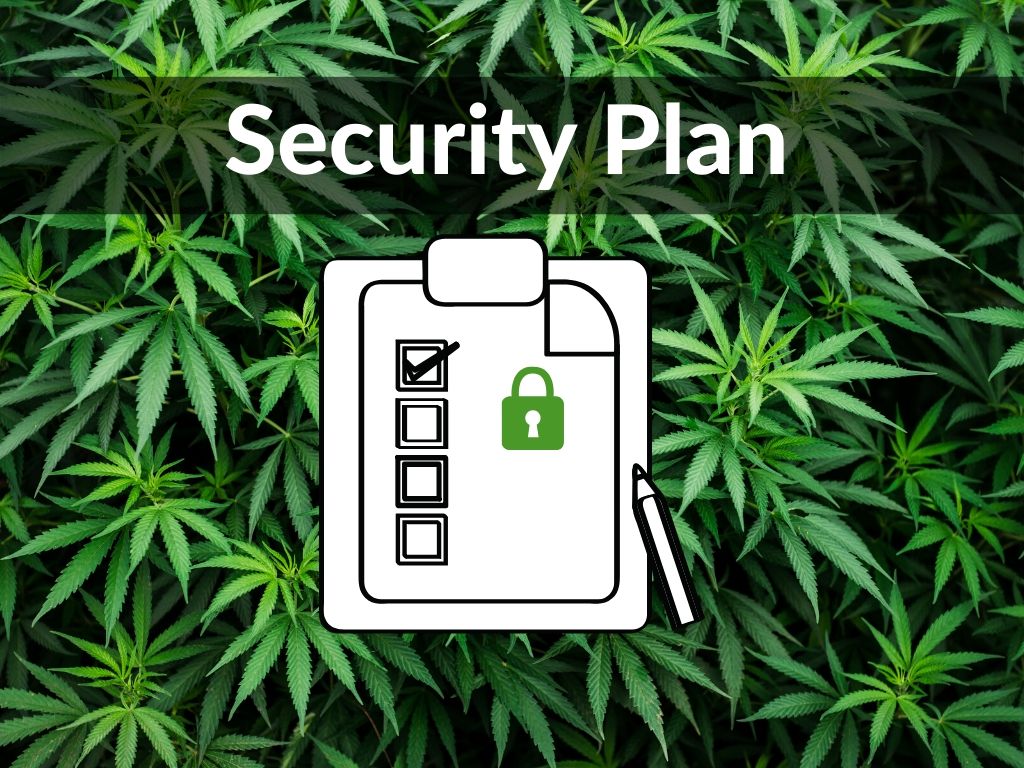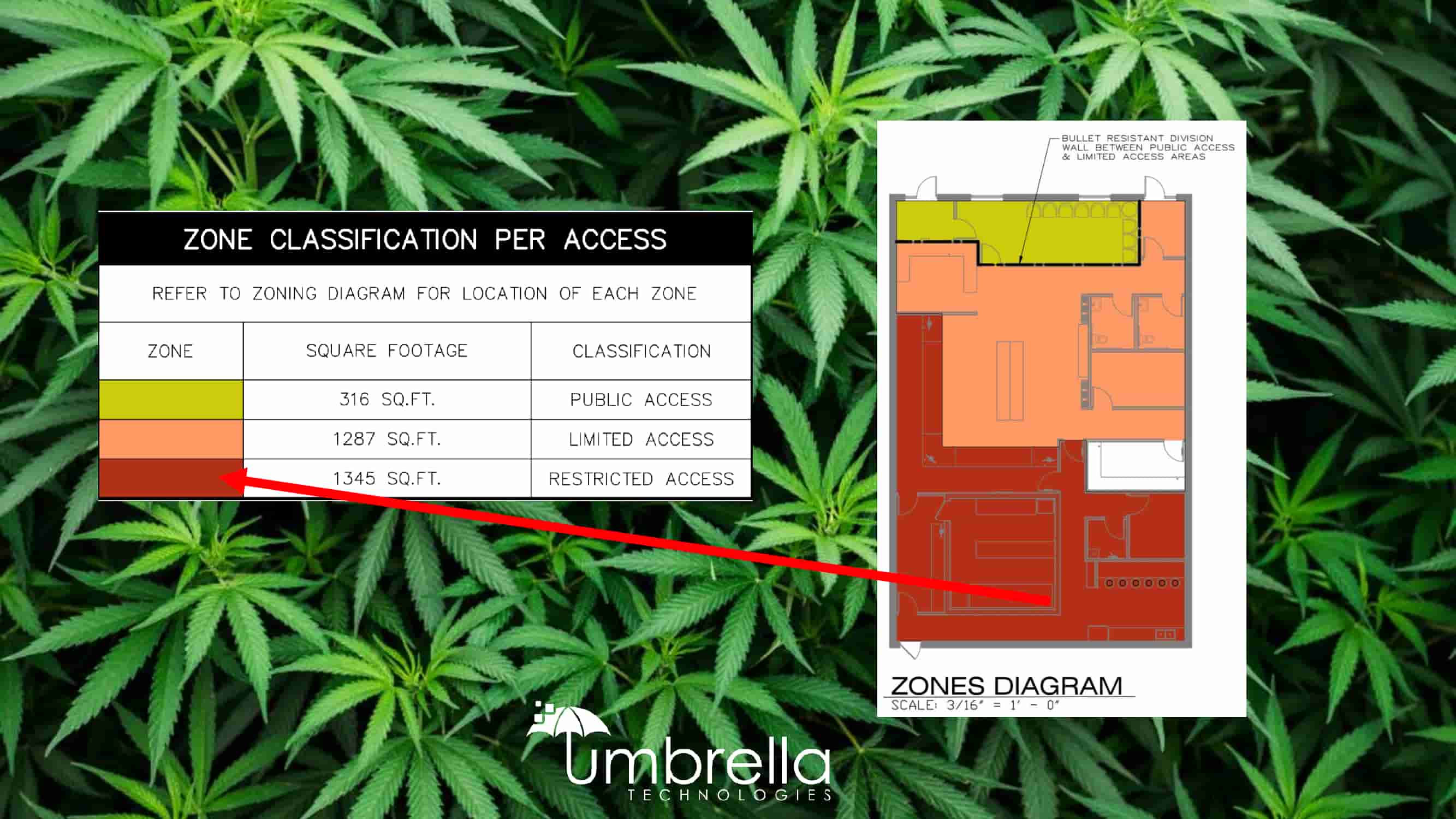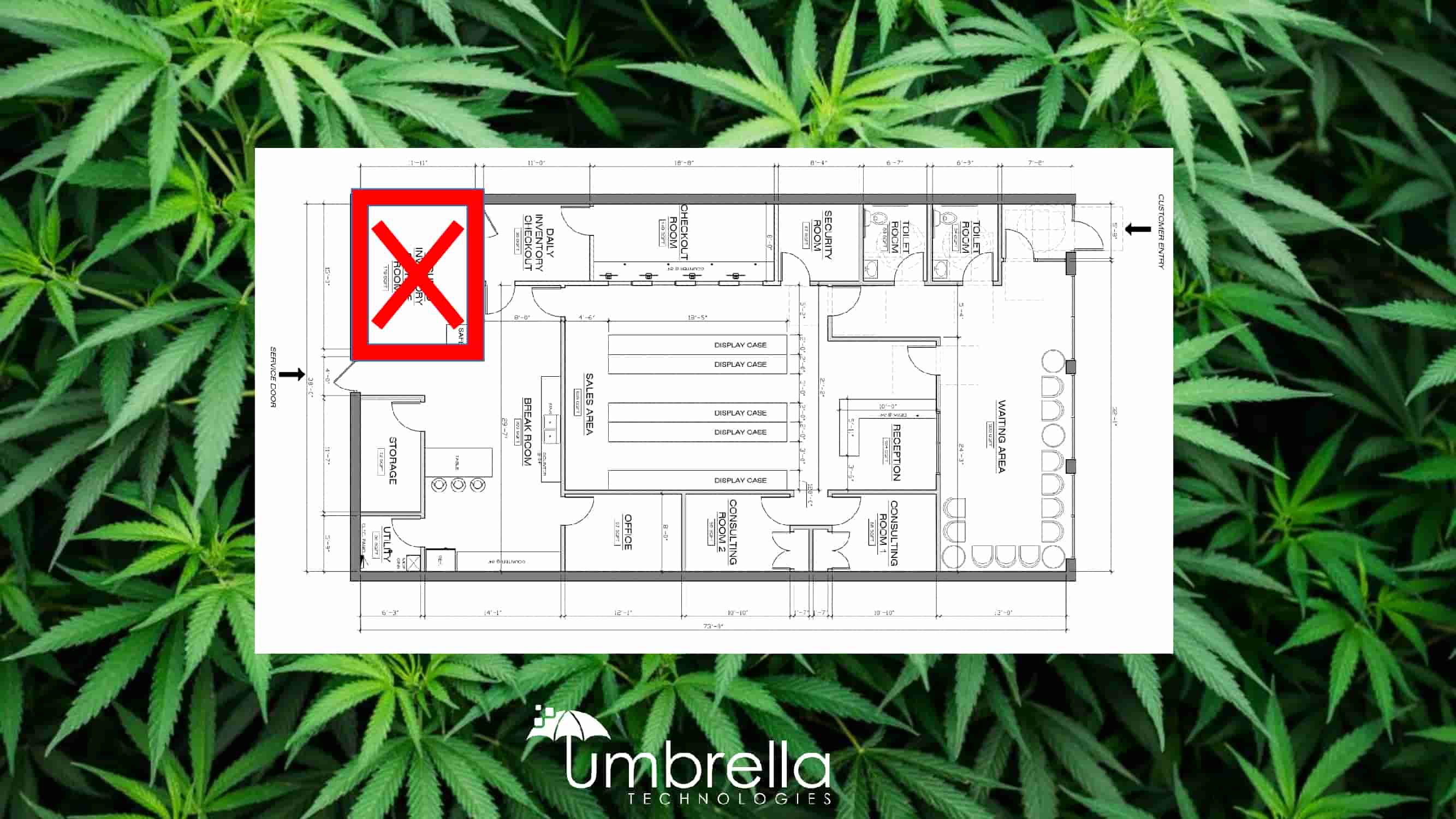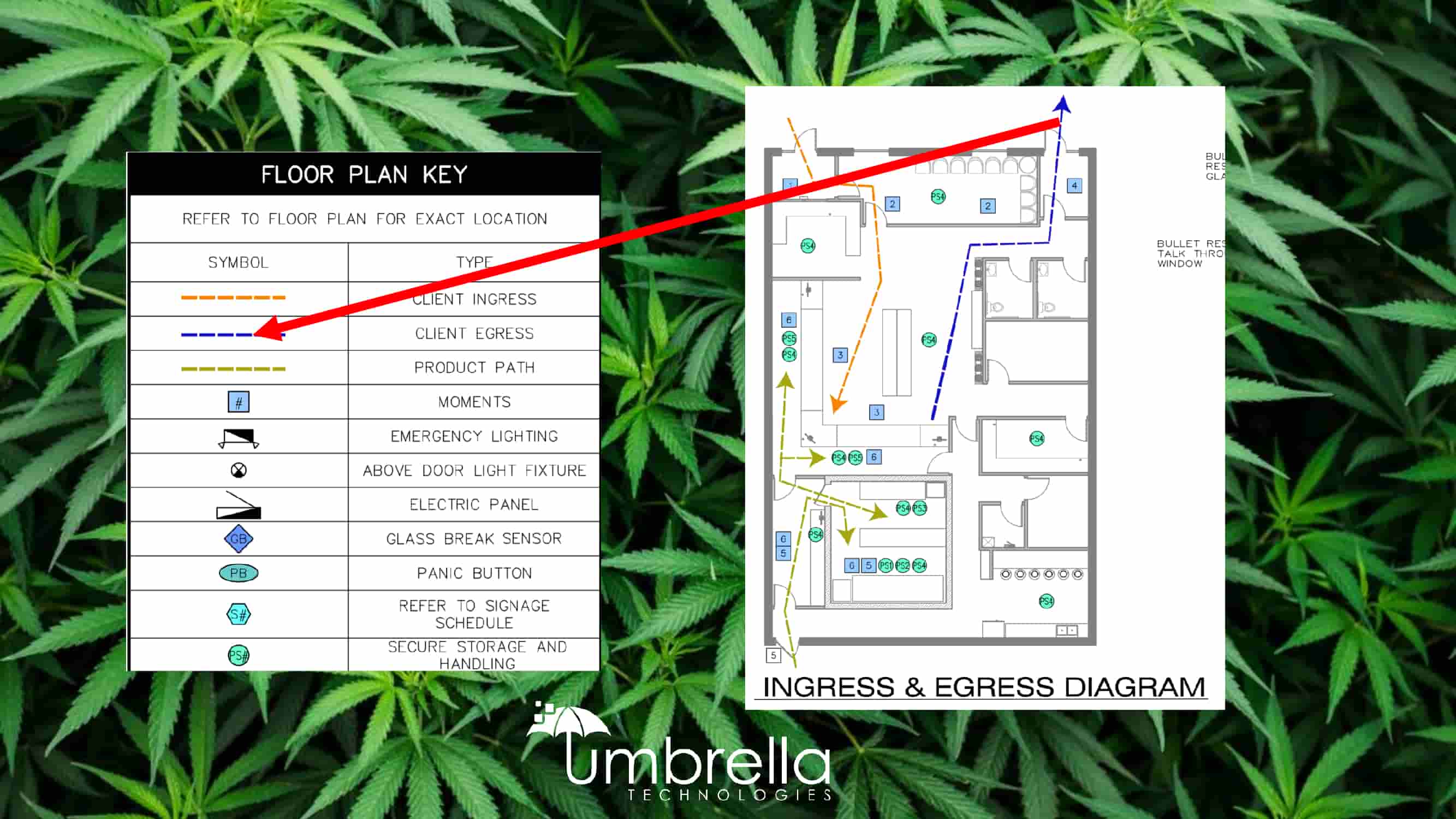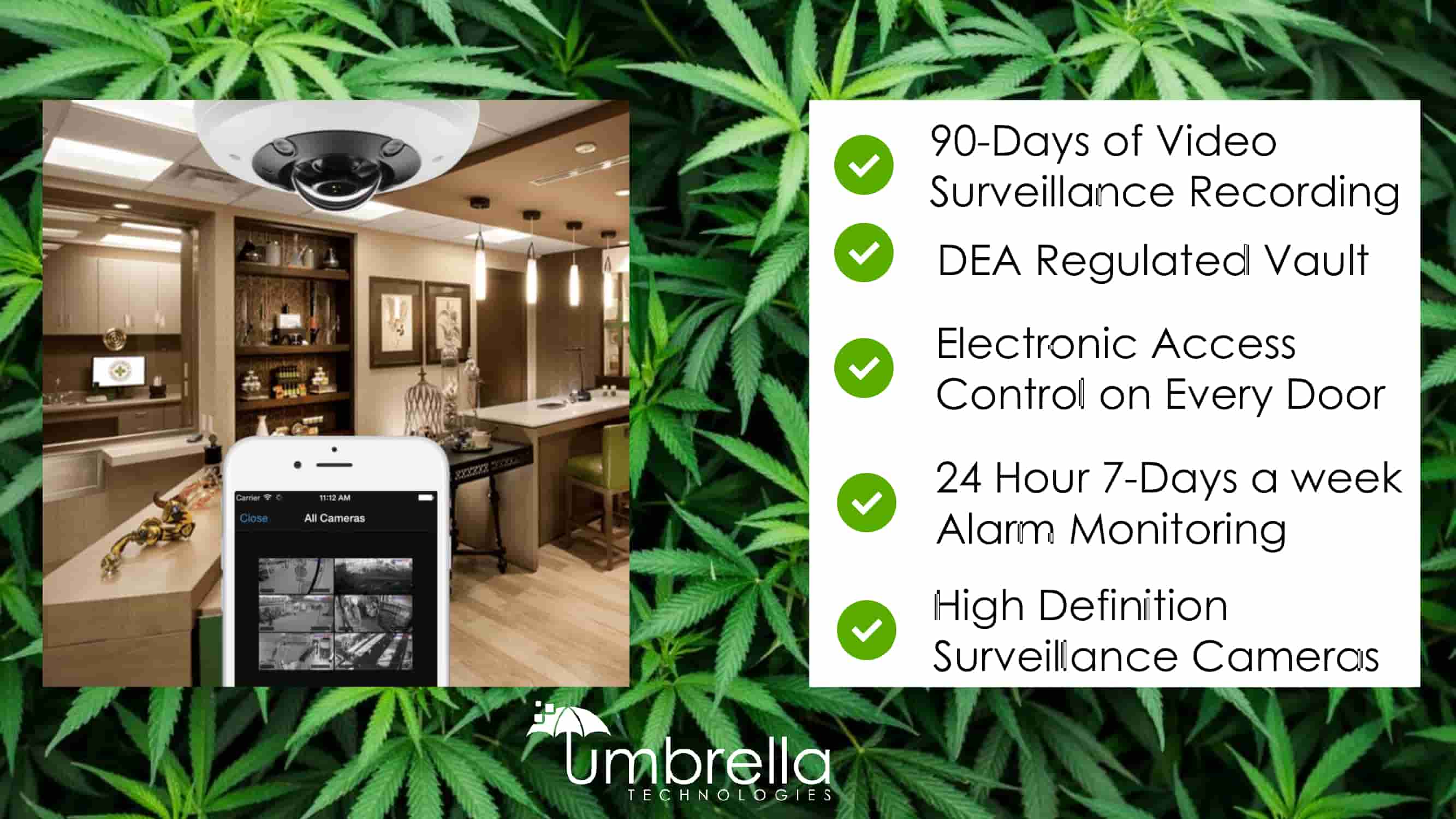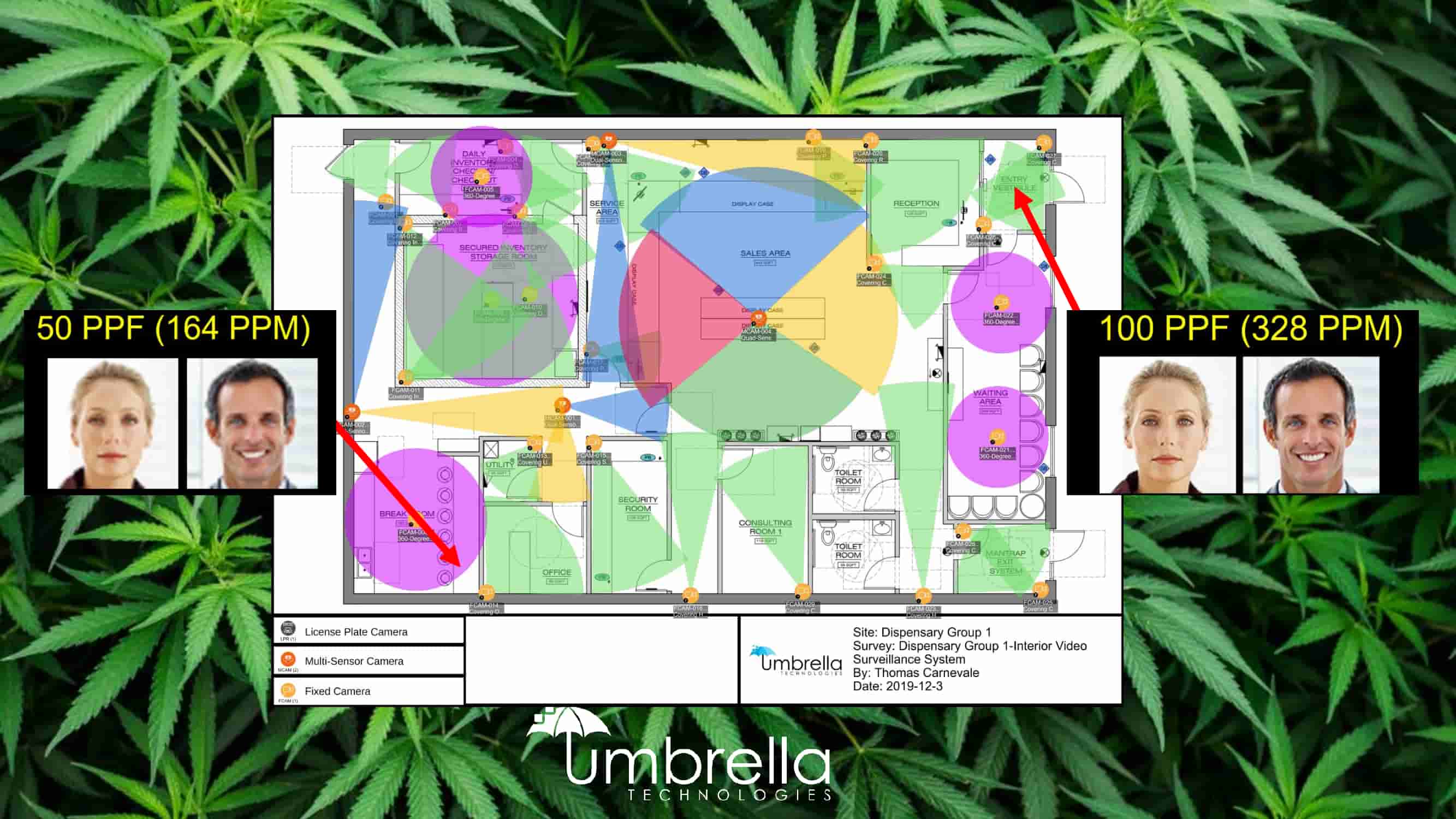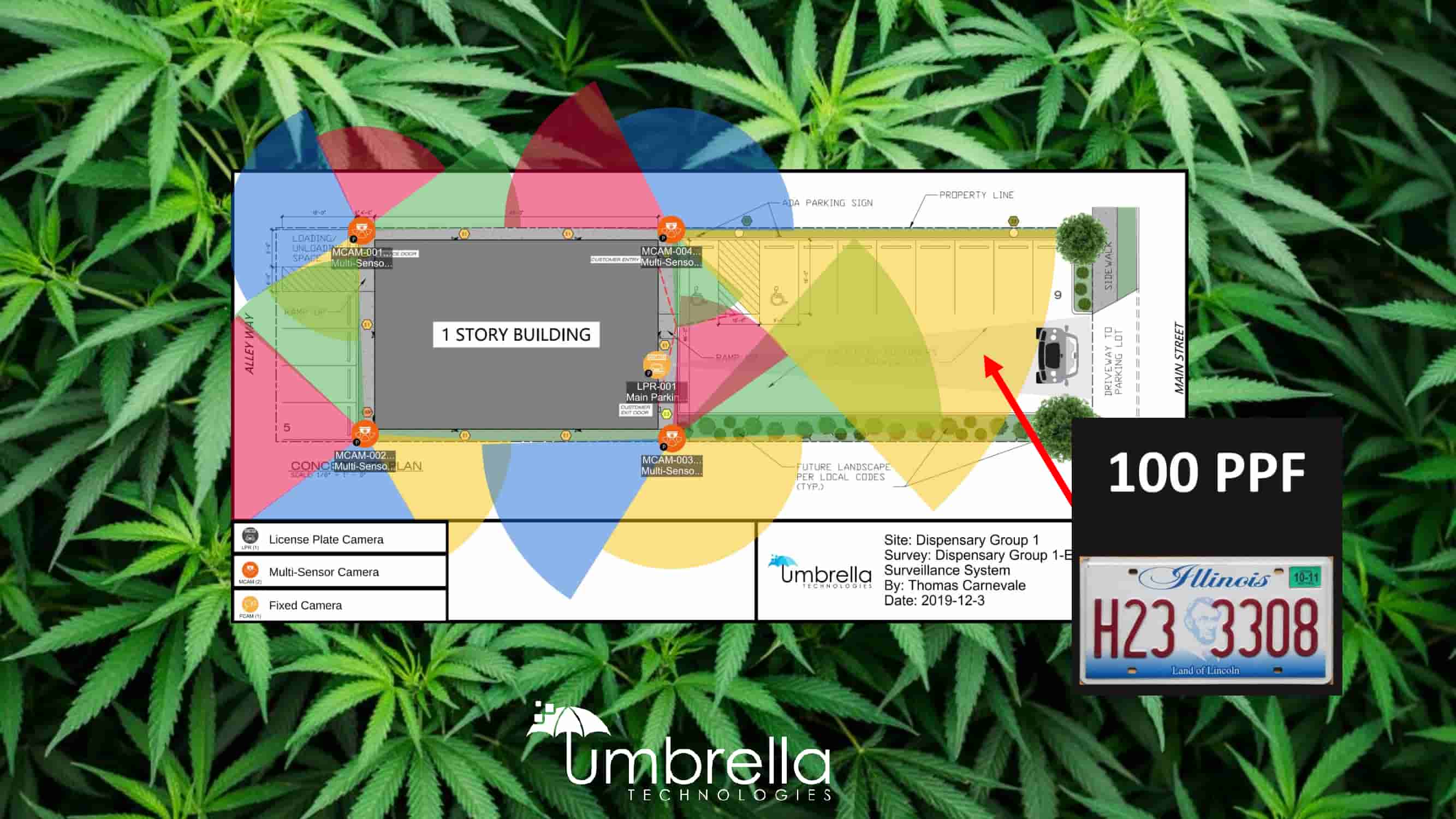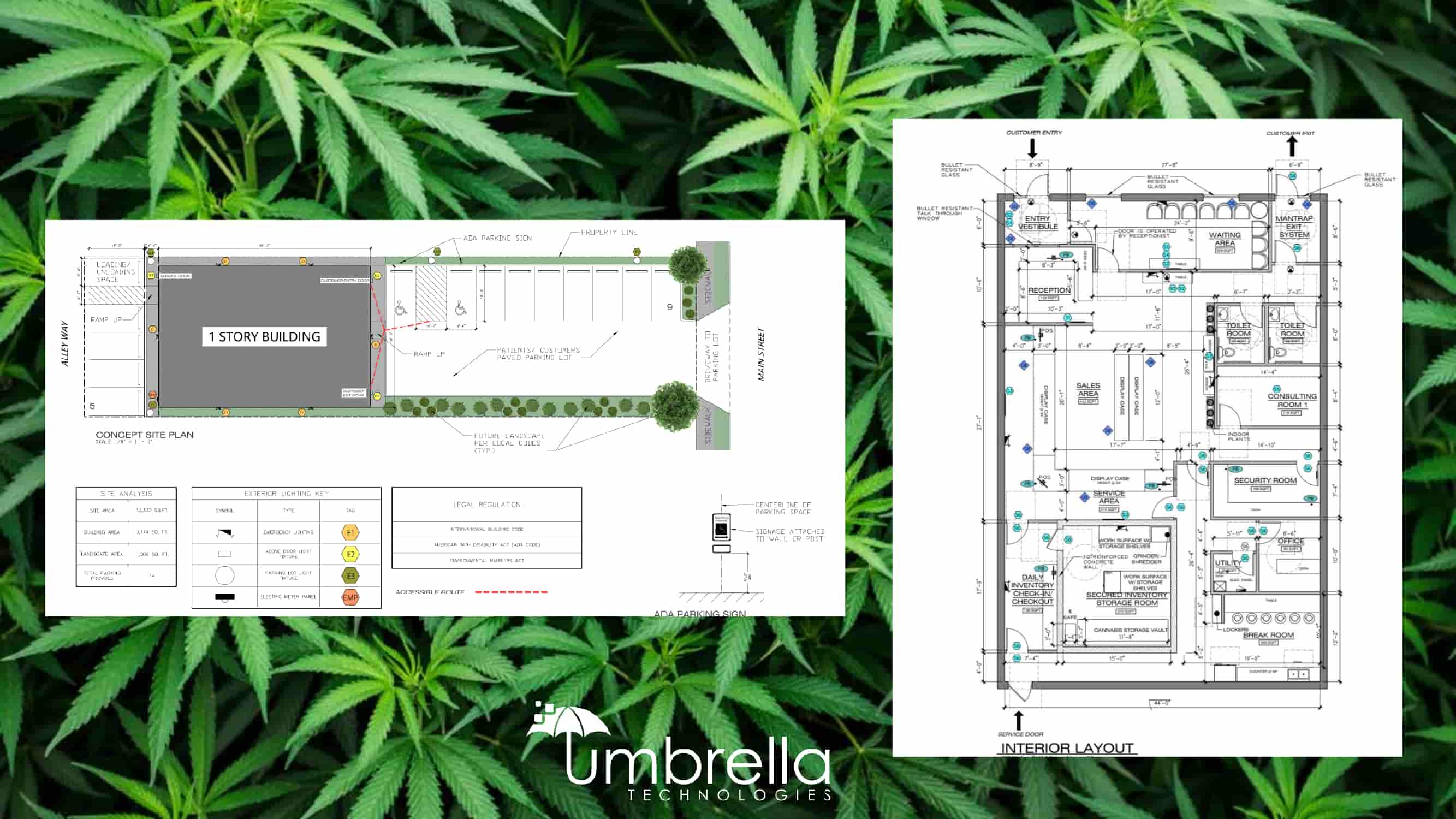Cannabis Security Solutions
The 2023 Ultimate Guide for Cannabis Security Systems, Security Plans, Compliance, Installation,
Risks, & Best Practices
Cannabis Security Solutions
The Ultimate Guide for Cannabis Security Plans, Compliance, Risks, & Best Practices
Cannabis growing/processing facilities and dispensaries must safeguard their products, facilities, employees, and reputation amid the heavily regulated business landscape. It is important to invest in a cannabis security solution that is well equipped – in terms of legal compliance, operational policy/procedure integration, and employee training. This complete guide identifies the most important aspects of cannabis security for you to consider.
Umbrella Technologies’ COO, Thomas Carnevale, was brought in by the Chicago ABC7 investigative news team as a cannabis security expert to discuss the crucial role of security in the new Illinois adult-use cannabis dispensary industry.
Guide Table of Contents:
Interested in a FREE security consultation?
Send us a message and a cannabis security expert at Umbrella Technologies will get back to you shortly.
Cannabis Security Planning
“By failing to prepare, you are preparing to fail.” – Benjamin Franklin
Drawing inspiration from Benjamin Franklin, a cannabis security plan is essential to protecting legal marijuana growing operations or dispensaries. A strategic security plan is the foundation for any successful cannabis security program. It sets the groundwork for all measures and policies to secure an organization’s assets. It involves documenting the objectives of the security initiative, assigning responsibility, identifying common security risks, highlighting key systems, and enforcing security policies. Simply put, it’s the first step to mitigating business risks.
Cultivation sites and dispensaries are at high risk due to the street value of the product, it’s desirable nature, heavy cash traffic, intense compliance scrutiny, and an ever-changing regulatory environment. That is why states require new cannabis businesses to develop an effective and comprehensive cannabis security plan before receiving approval to start selling products. But what defines an effective security plan?
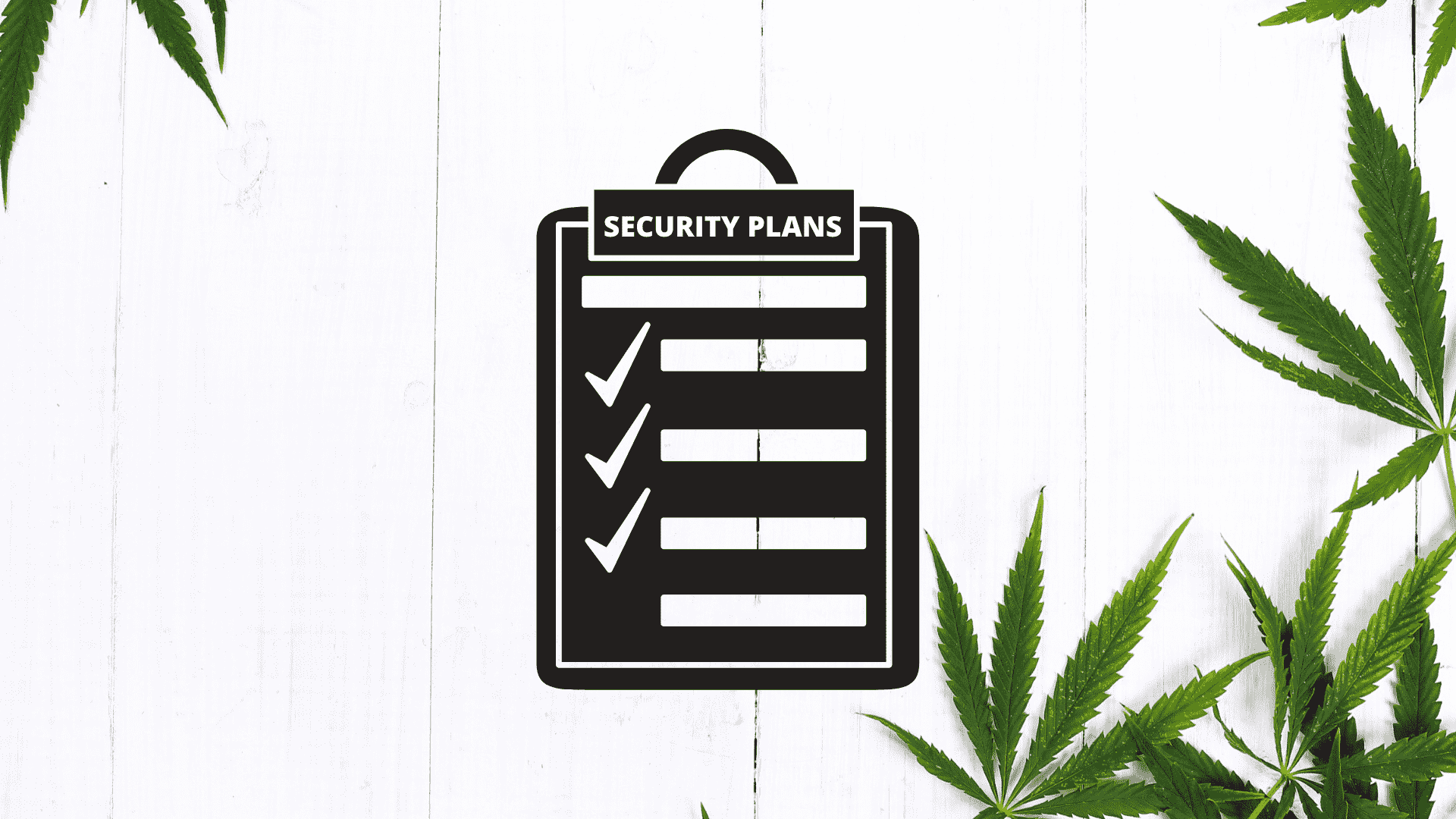
Security Plans for Cannabis Applications
Cannabis Security Plans that are required for state licensing applications require a ton of content. These plans are often in the neighborhood of 200,000 words or 50+ pages. They must have every rule, regulation, policy, and procedure designed to reduce business and legal risk.
But it isn’t about just checking off a list of security topics. Every piece of your security plan needs to correlate with your actual operations. Video surveillance, intrusion detection, and access control designs must match with the proposed floor-plan in other areas of the cannabis application.
The cannabis industry faces a high level of security scrutiny. States are now requiring 24-Hour video surveillance recording, 90-days security footage storage on-premise & for cloud recording. There are even more expectations such as high definition security cameras that can be used for accurate facial recognition, continuous system monitoring, printable still photos from security cameras, watermarked time-date and stamped video feeds, panic alarm buttons, DEA regulated safes and much more.
If it seems like a lot, it is. But before you get overwhelmed, Umbrella Technologies has successfully navigated this process with dozens of our clients. We are here to help you complete your application so that you can receive your cannabis dispensary license. Give us a call today for a free consultation: 630-270-3313
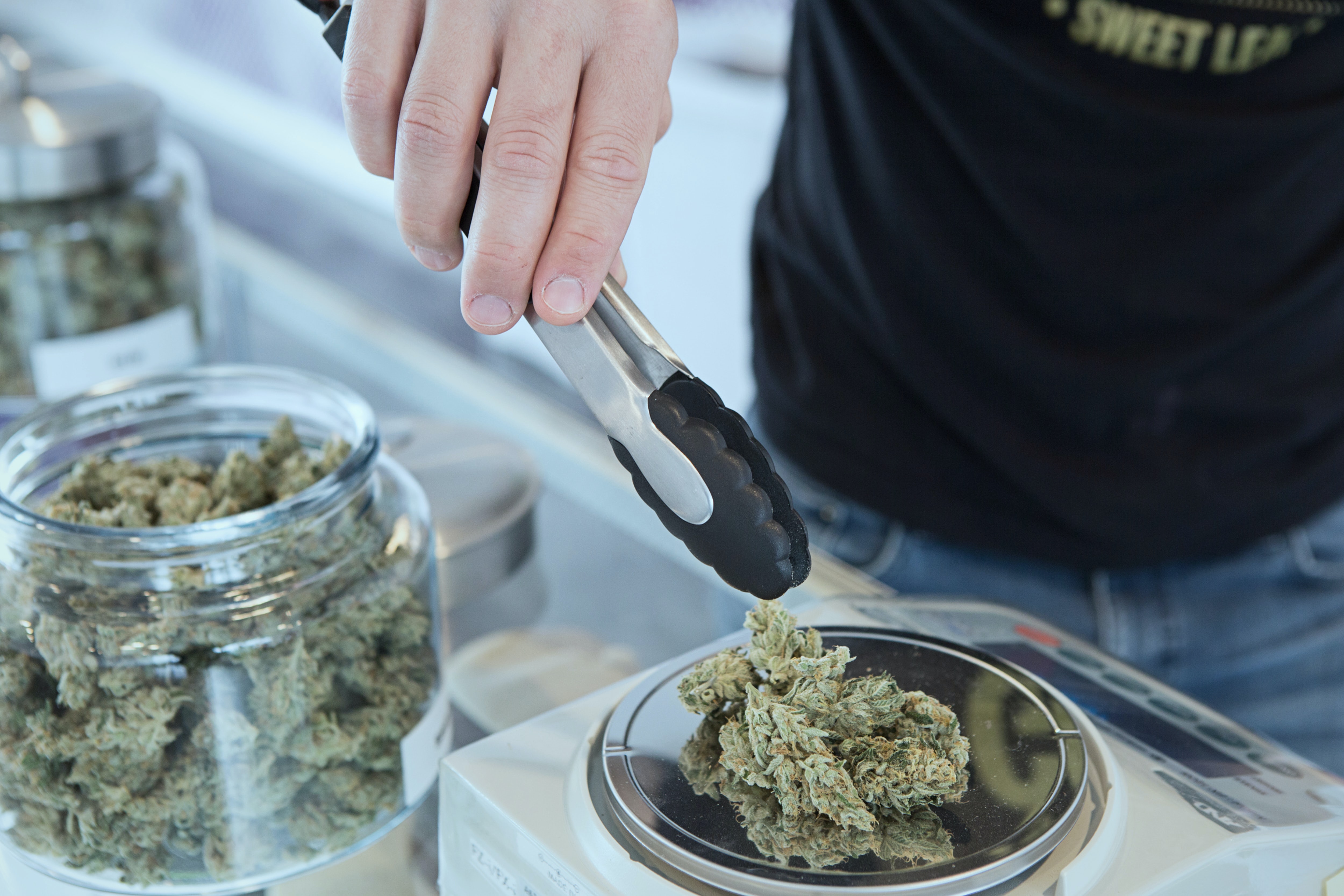
Marijuana Dispensary Security
The profitability and high point-of-sale revenues in the legal cannabis industry make marijuana dispensaries a bulls-eye target for theft. As such, a dispensary security plan should be prepared to protect valuable items in the store, on-site funds from recent sales, the products available for sale, customers, and employees.
Dispensary security starts with familiarizing yourself with federal and state regulations that are in place for the cannabis industry. However, these regulations vary from one jurisdiction to another. Therefore, you must understand the legal security requirements in your region and incorporate them into the dispensary security plan.
Risk assessment is an important part of any security plan. It involves understanding the potential challenges and threats in the industry. From there, your dispensary security plan should have a framework that highlights how your business will tackle common and unique risks.
A dispensary security plan also assigns responsibility to all stakeholders. What are your roles as the owner? Which employees have access control? How can a third-party cannabis security company improve the outcome of the security plan?
While preparing the plan, it’s important to consider the future outlook on the scale of operations. According to industry insights, the legal marijuana market has an estimated 18% compound annual growth rate. As the acceptance of cannabis accelerates, so will the potential growth of your dispensary. With this in mind, a dispensary security plan should be scalable to meet increasing demand.
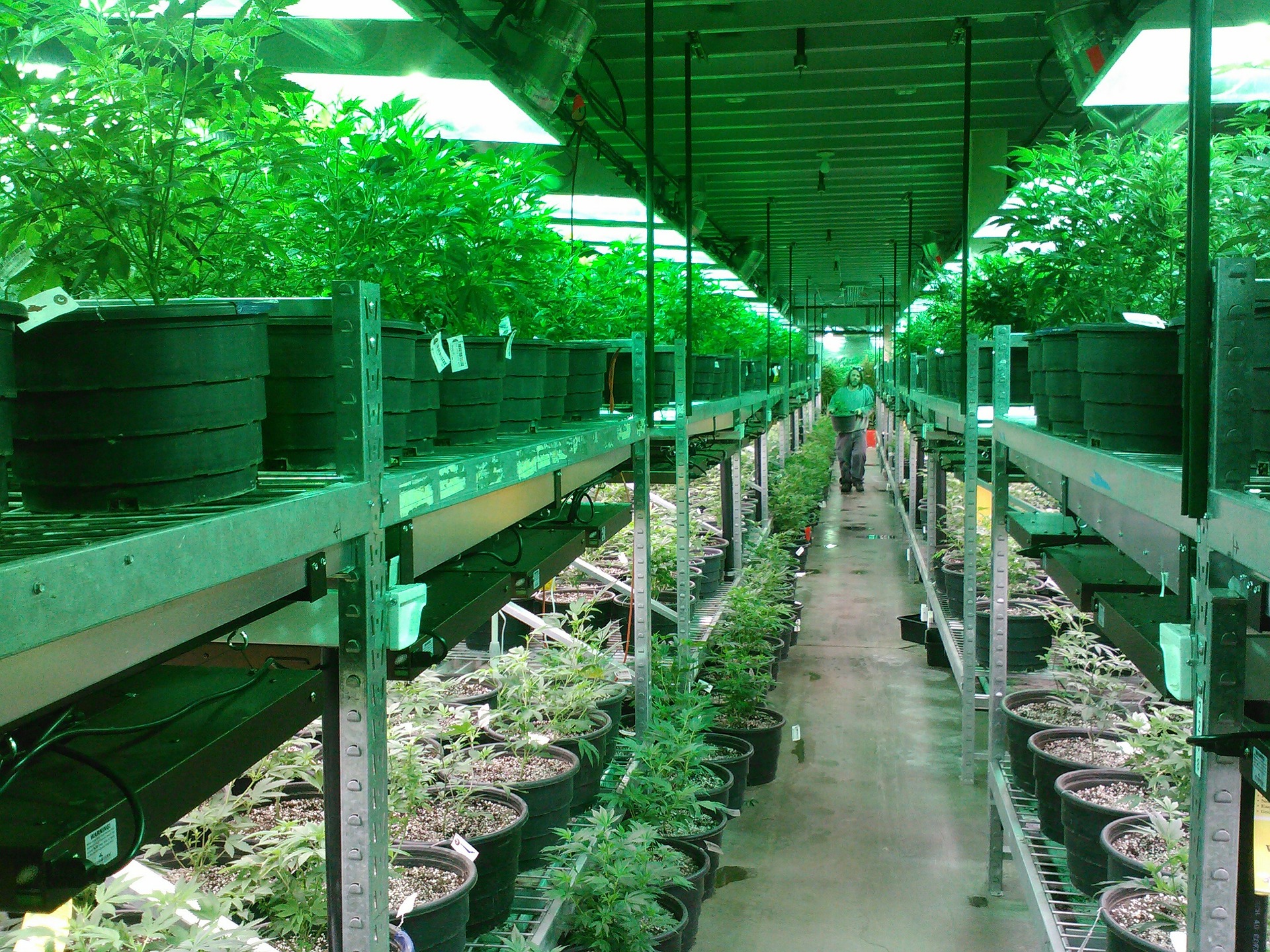
Marijuana Grow Operation Security
Marijuana farm and cultivation sites are often overlooked when it comes to cannabis security. This may be attributed to the low foot traffic or the limited cash transaction involved. But similar to dispensaries, grow operations have valuable assets that are at an increased risk compared to other products. Product loss or damage could break the business’s supply chain relationships, mean a loss of license, or have legal ramifications.
Cultivation facilities face a unique set of security challenges. Most regulatory bodies demand an SOP (Standard Operating Procedure) that contains information on the grow operations’ security plans. A marijuana grow operation security plan must consider several elements in the planned protocol such as:
- ☑ Local Marijuana Cultivation Regulations: Which legal regulations are applicable, and what are the repercussions for non-compliance? Cultivators must consider local, state, and federal regulations that apply to the grow operation.
- ☑ Trace and Track Procedures: From seed, cultivation, to sale, it’s crucial to adhere to a strict product tracking system. The security plan must also detail how you will track the products, especially after harvest.
- ☑ Security Equipment: Which tools will you use to enforce your security policies and procedures? What surveillance cameras, perimeter security, alarms, and lighting will you install to secure the property?
- ☑ Employee Identification: Cannabis cultivators must develop a comprehensive security system to identify employees. This includes background screening, training, and assigned responsibility.
- ☑ Access Control: How will employees and visitors access the grow site? How will they be identified? Effective marijuana grow operation security plans should log arrival and departure times. Additionally, visitors should describe their purpose for the visit and wear a visible identification badge.
- ☑ Site Assessment: Marijuana grow operations are often unique – and hence need a unique security solution. This involves identifying site-specific security risks or vulnerabilities. Is it an outdoor or indoor cultivation facility? What is the crime rate in the area? Where are the access points, nearest roads, and law enforcement stations? What are the lighting and monitoring needs of the surroundings?
- ☑ Professional Cannabis Security Services: Are the services of an experienced cannabis security company necessary? Depending on the scale of grow operations, it may be highly advisable to bring in experts. This helps mitigate the risk of improperly installed security systems and a lack of mechanical abilities to effectively protect the property.
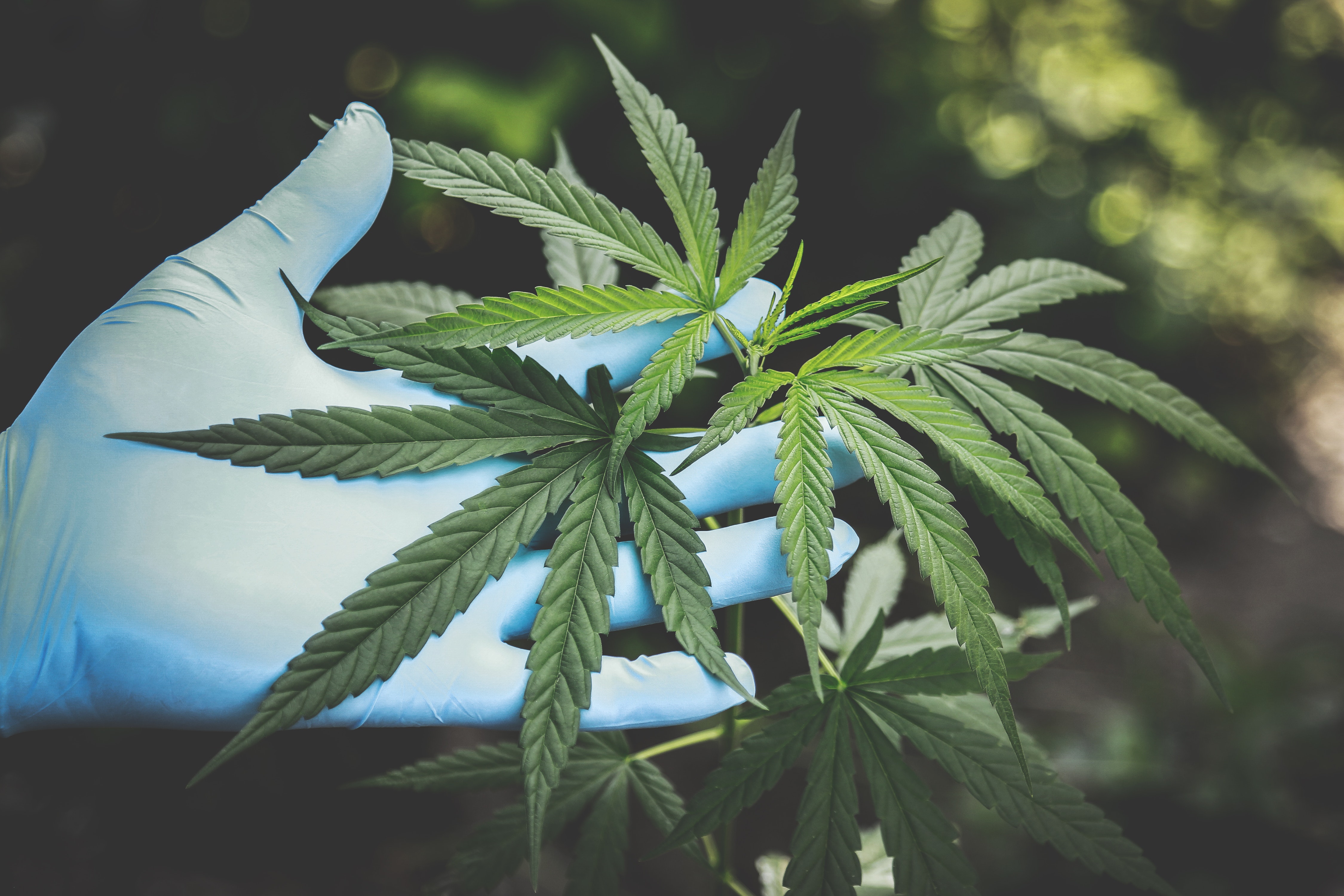
Security Plans For Other Cannabis Businesses
Dispensaries and cultivation centers are the most popular types of cannabis businesses. But this emerging industry also has many other layers including transportation, manufacturing and processing/infusing. In order to be licensed for any of these businesses the prospective operators must also submit a detailed security plan. While there is an obvious overlap with dispensary and grow operations, each of these types of business will have to expand upon the security areas unique to their cannabis business model.
Cannabis Transportation
Cannabis Transportation license applications are required for businesses that plan to transfer products that contain THC at any point in the supply chain. The primary transportation will occur from the growing operation to processing to the consumer facing dispensaries. Due to the potential risks of transporting cannabis products the procedures, protocols and security requirements for employees undergo a deep review. Many states require that background checks be conducted on ALL agents of a prospective cannabis transportation organization before the organization can even submit its licensing application.
Cannabis Manufacturing & Testing
Before opening a marijuana manufacturing or testing operation, the business is required to go through a state licensing process and should design a detailed plan that highlights their security compliance and material safety protocols. Prospective cannabis manufacturers must also check that there are no additional environmental factors associated with refurbishing an existing factory or building a new testing lab. Once operating, manufacturers and testing operations will need to follow the specificly outlined security protocols for handling the storage of materials and the elimination of waste that may contain THC or sensitive materials.

Processing & Infusing Cannabis
Alternative methods of ingestion for THC & CBD are processed at infusion labs to create a variety of products for the cannabis industry. Processors are responsible for meeting product safety guidelines, packaging requirements, and contaminant restrictions for all types of cannabis products, including: edibles, oils, sublinguals, tinctures, and topicals.
When infusing edibles, some states require that the business prepare, cook, and process the product in a commercial kitchen. These additional regulations provide for additional security challenges and can open businesses up to more risks. As a result, the oversight on these types of processors is strict. But the companies that are able to demonstrate their responsibility in a properly drafted security plan will have a massive completive advantage as the cannabis market continues to develop.

Umbrella Technologies is the leading security consulting, planning, and implementation company for the cannabis industry. Our team has helped over 150 clients across 12 states, have been interviewed on national news networks, spoken at numerous cannabis conferences, and have even been recognized with 3 industry security awards. Plus, Thomas Carnevale (Founder of Umbrella Technologies) is a security consultant and expert for the Cannabis Industry Advisor. Umbrella Technologies has the experience, technology, and industry knowledge to offer you expert cannabis security solutions.
Cannabis Security Compliance
Did you know that a lack of cannabis security is subject to legal penalties for non-compliance? Creating and enforcing cannabis security is not just about protecting your assets – it’s a legal requirement.
However, the security regulations and accompanying penalties for non-compliance vary depending on the incident and geographical jurisdiction. In the worst-case scenario, lack of cannabis security leaves the business liable to closure, revocation of the marijuana license, or even jail time (if criminal charges are pressed for willful misconduct or negligence).
In the United States, cannabis security compliance is a complex and outright confusing process for most business owners. Much of this confusion is attributed to conflicting laws on the legality of cannabis. At the time of writing this post, cannabis is legal for adult recreation and medical use in 11 states. Another 33 states have only legalized marijuana for medical use. But marijuana remains a Schedule 1 substance on the federal level. Regardless of the legal discrepancies, cannabis security compliance is compulsory.
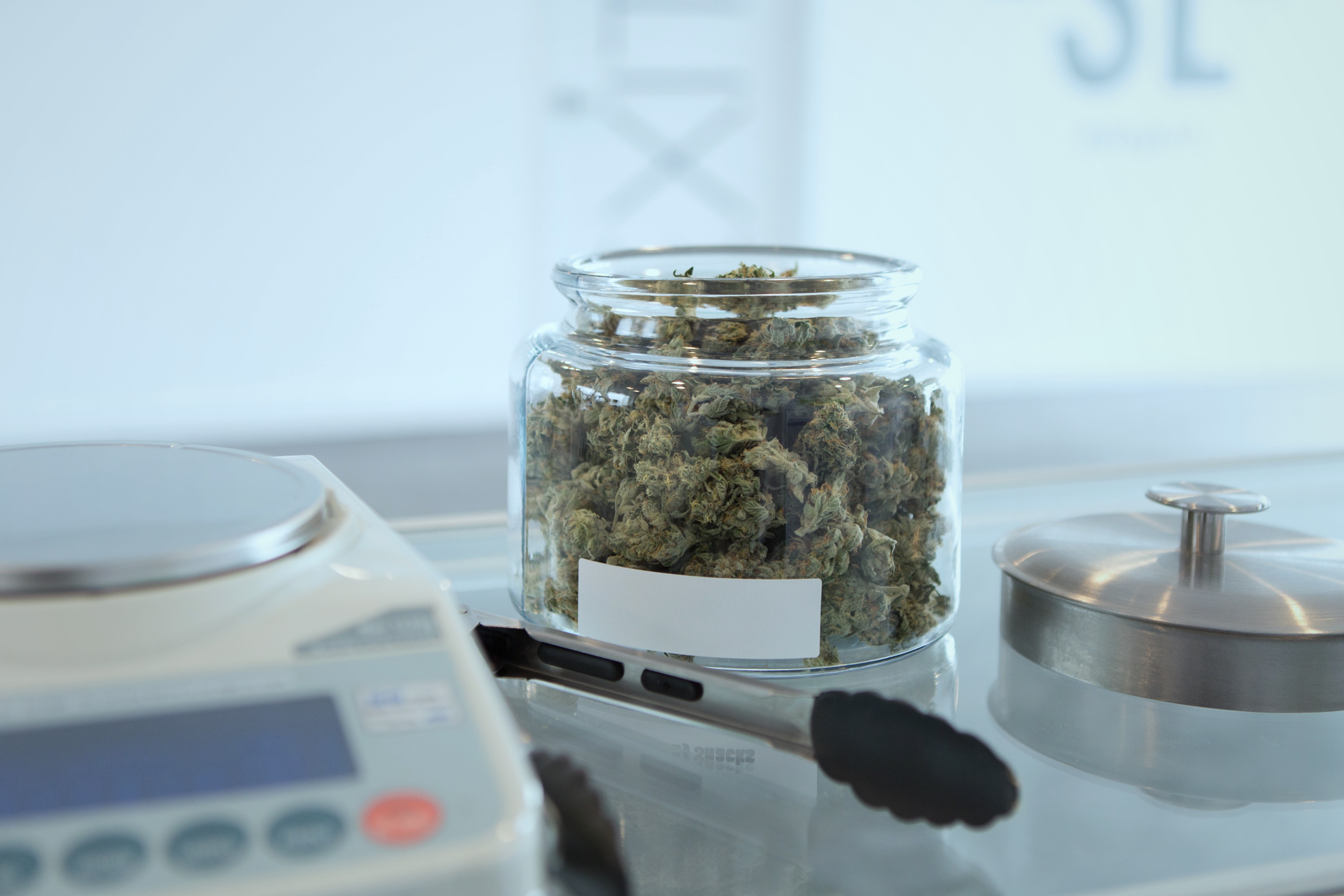
Federal Regulations for Cannabis Security
Simply put, there are no federal regulations for marijuana dispensaries. At first glance, this seems to work in favor of cannabis dispensaries and grow operations. However, looking deeper into the matter shows that the reason behind the lack of specific dispensary regulations has to do with the federal legal stance on cannabis.
At the federal level, the cultivation and sale of cannabis have not been legalized. The landmark 2018 Farm Bill (passed by President Trump) did not legalize cannabis – at least not entirely. The bill only legalized the cultivation and sale of industrial hemp at the federal level. Any cannabis product with a THC content exceeding 0.3% is still under the regulation of the Controlled Substances Act.
Whereas this law expanded the growing potential of some cannabis products, it did not lay a clear framework for the marijuana security industry. Regardless, it was a positive step towards the decriminalization of cannabis.
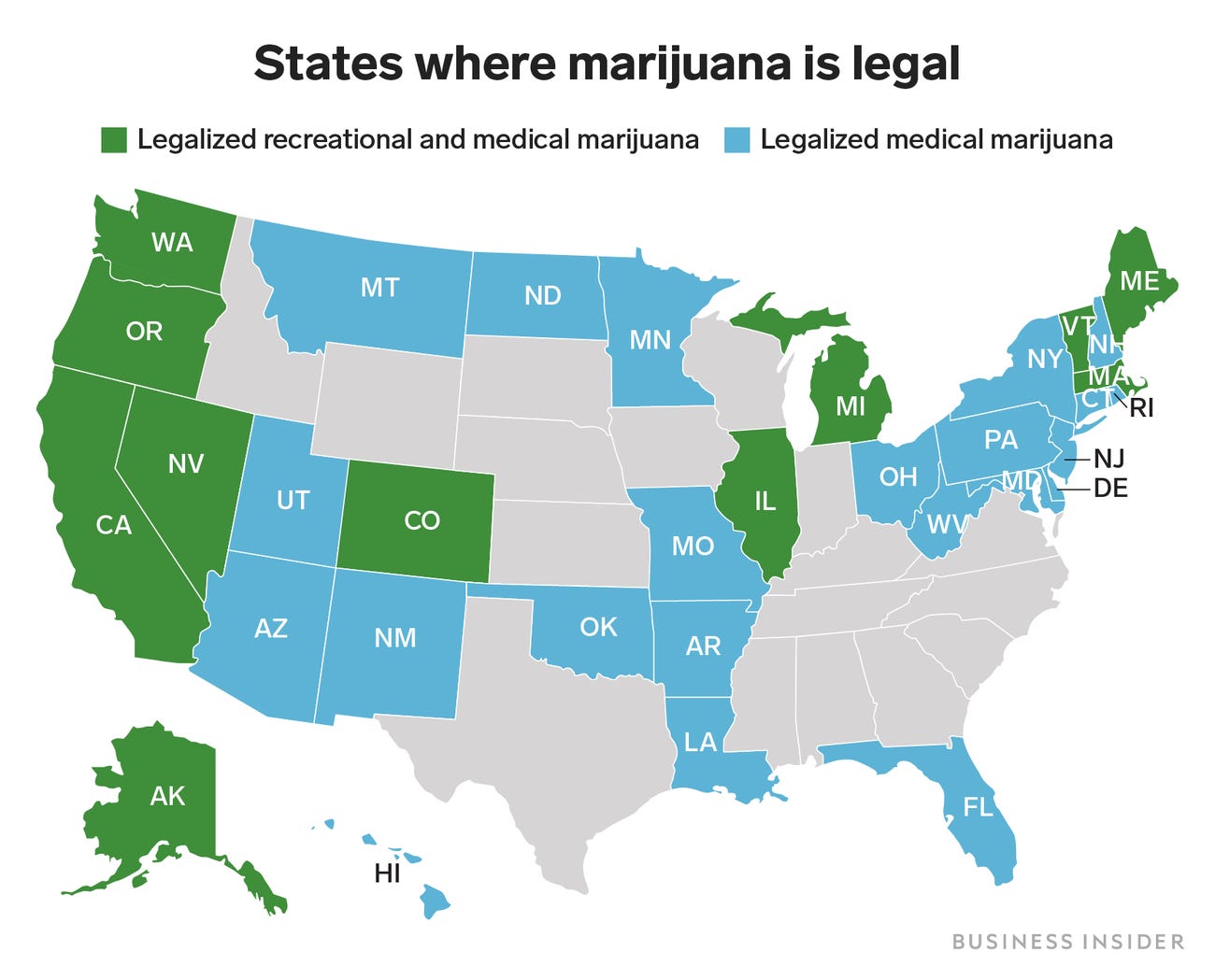
State Regulations for Cannabis Security
Cannabis legalization and regulations are typically enacted at the state level. With this in mind, state regulations for cannabis security are available – and rather comprehensive. But cannabis regulations and security requirement differ from one state to another. The cannabis security compliance requirements in Illinois may be significantly different from those in Michigan.
Unfortunately, it’s not practical for us to discuss the state regulations for cannabis security in each state in this guide. This guide will give you an overview of the legalization status of cannabis and an example of state requirements from one of the states. This should give you a general idea of the compliance requirements, please reach out to us directly if you want to discuss the specific regulations for your state.
Currently (at the time of this post), recreation and medical use of cannabis is legal in 11 states and Washington DC. The states (links to more information about their state cannabis regulations) are Washington, Vermont, Oregon, Nevada, Michigan, Massachusetts, Maine, Illinois, Colorado, California, and Alaska.
Medical use of marijuana is legalized in the above 11 states plus West Virginia, Utah, Rhode Island, Pennsylvania, Oklahoma, Ohio, North Dakota, New York, New Mexico, New Jersey, New Hampshire, Montana, Missouri, Minnesota, Louisiana, Iowa, Hawaii, Florida, Delaware, Connecticut, Arkansas, and Arizona.
As if state-level regulations for marijuana dispensaries are not complicated enough, you may have to observe cannabis regulations at the municipal or local level. If this all sounds overwhelming, working with an experienced cannabis security company may ease your troubles.
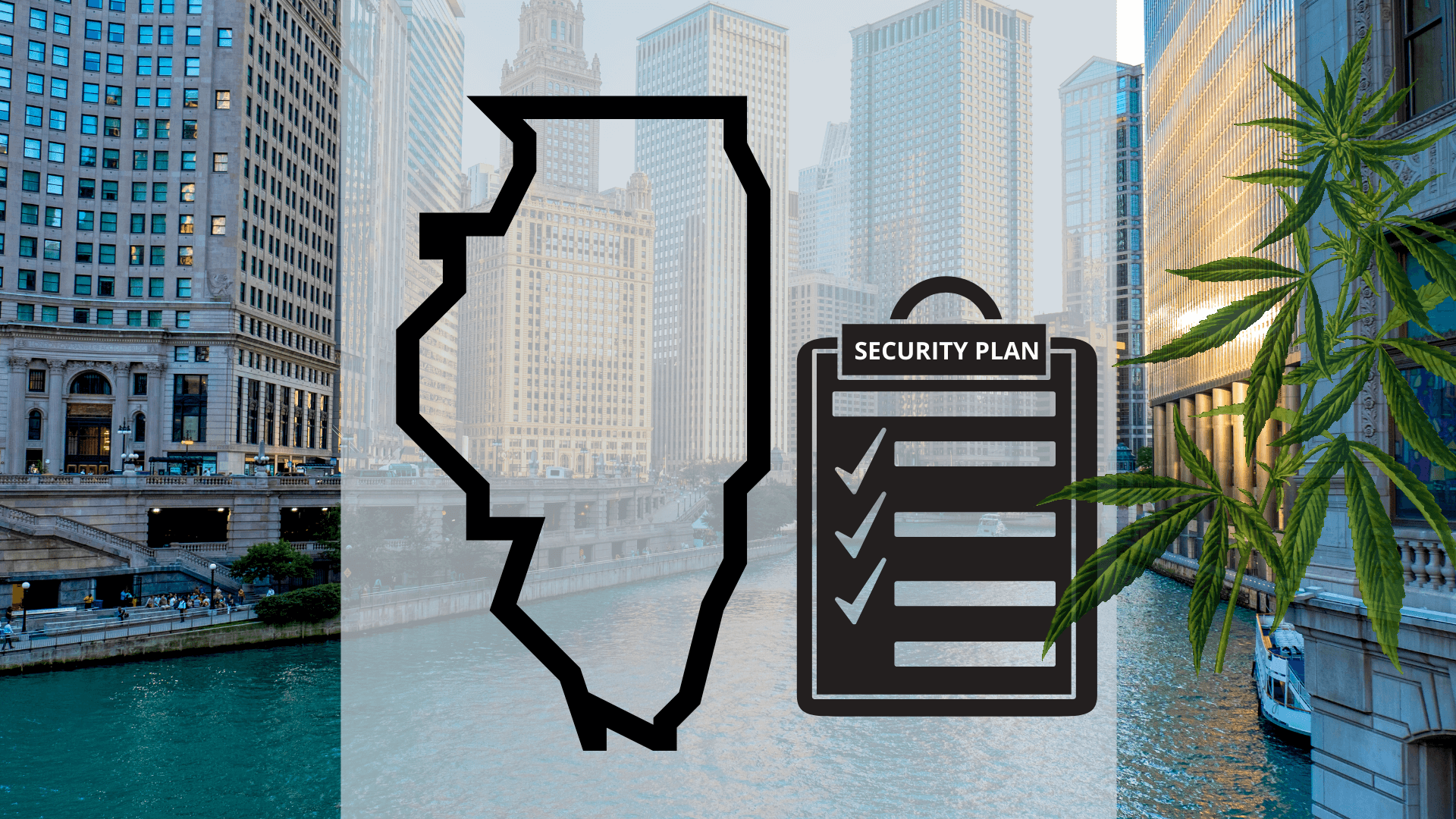
Security Risks & Threats
As the legalization and profitability of cannabis continue to grow, retailers, distributors, and manufacturers must be prepared and well-equipped to deal with an increase in security risks and threats. An understanding of the potential challenges in the cannabis industry is crucial. It helps businesses design effective security protocols. With this in mind, here are the most common security risks and threats facing cannabis dispensaries and grow operations.

Robberies
Theft and robberies are constant threats to all businesses – and the cannabis industry is not an exception. Marijuana dispensaries are at risk of passive theft through shoplifting and fraud. These businesses are also at a higher risk for aggressive robberies, including break-ins and the use of violence. In our technologically-driven world, cannabis dispensaries are also exposed to cyber-attacks. Valuable data, confidential customer information, operations systems, and even dispensary security camera systems are vulnerable targets for hackers.
Although the threat of break-ins, robberies, shoplifting, and cybercrime seems unavoidable, the risk can be mitigated with the help of a well-thought-out cannabis security plan and by following the best practices laid out by a cannabis security company.

Employee Theft
Believe it or not, up to 90% of theft incidences in marijuana dispensaries can be traced to previous or current employees. When you think about it, this is not a major surprise. Employees have access to products, lock codes, cash registers, and insider knowledge of all business operations. The risk of employee theft is even more significant when a business does not have adequate knowledge of an employee’s background.
Luckily, the same security plan and systems that deter outsider theft can also be used to minimize employee theft and ensure compliance. This includes running background checks during the hiring process, documenting operational procedures, enforcing access control, and offering training from a cannabis security company (like Umbrella Technologies).
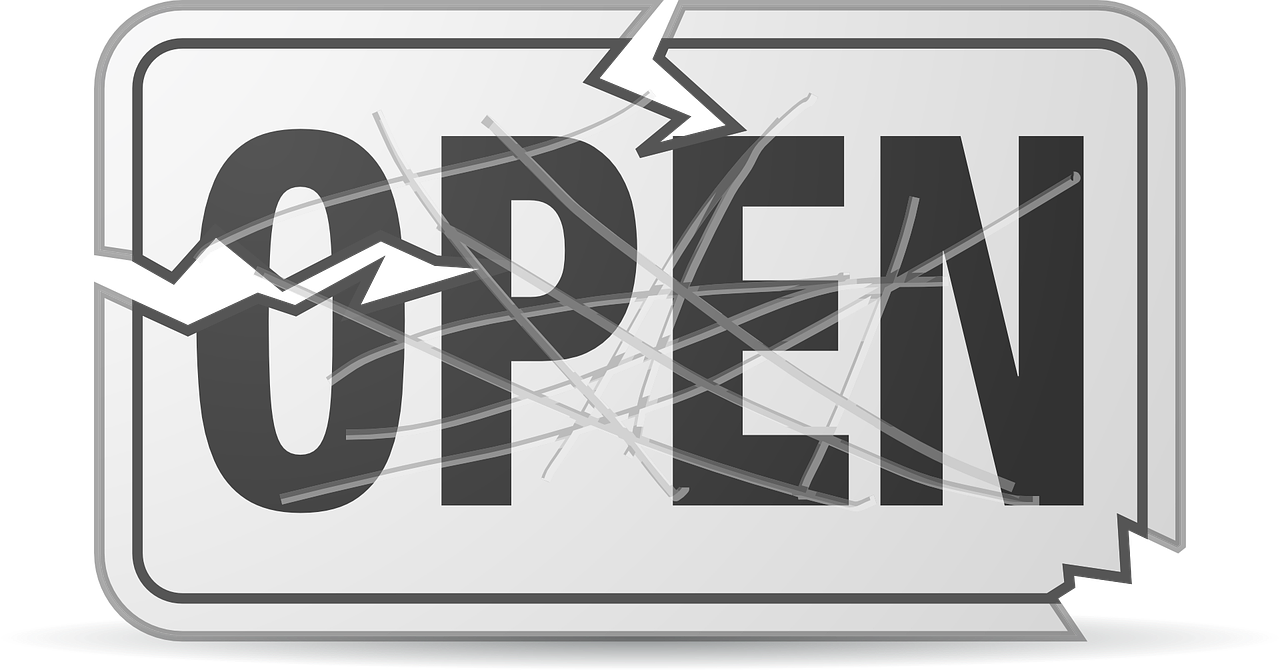
Product Damage & Loss
Product damage and loss are among the biggest threats to cannabis security. Additionally, there are several access points in the supply chain that only increase the potential risk of tampering. The repercussions from product tampering can affect a marijuana dispensary in four major ways.
- Financial Loss: The most obvious outcome of product loss and damage is its impact on the dispensary’s revenue stream and profitability. Depending on the scale of damage, it can even cripple a company.
- The Health of Customers: Since cannabis is a consumable, a product that has been damaged or tampered with poses a health risk to customers.
- Non-Compliance: Damaged products are subject to non-compliance to cannabis security regulations. This depends on the particular incident and jurisdiction.
- Company Reputation: In the cannabis industry, trust is as important as business assets. Tampered products could soil a company’s reputation, leading to a loss of trust from the consumers.

Marijuana Transportation
While in transit, marijuana is highly vulnerable to theft, tampering, and missing compliance with state-level regulations. Regardless of its stage in the supply chain, special cannabis security measures and best practices must be observed to safeguard the product. You must also consider the legal status of cannabis in all states along the transit route.
Marijuana transportation risks also applies to the movement of cash. Since marijuana is not legalized at the federal level, cannabis dispensaries do not have the same unrestricted access to banking systems as other businesses. This means that dispensaries often have to physically deposit and transport funds from their legal business operations.
Cannabis Security Services
The unprecedented growth of the cannabis industry and an increasing number of threats seem unavoidable in the cannabis industry. To take advantage of the booming industry with minimal risks, implementing cannabis dispensary security solutions is crucial. With the help of a dispensary security plan, you can safeguard your products, protect your reputation, minimize financial loss, and avoid legal penalties due to non-compliance.
Cannabis security comes in various forms, from security system installation, employee training, security procedures, to physical guards. Businesses must develop a comprehensive security checklist for cannabis grow facilities based on the best cannabis security systems and technology. Depending on your scale of operations and legal cannabis security requirements, you may have to find help from professional cannabis security company.

Policies, Procedures, & Training Employees
Even the best cannabis security system design and installation are useless if you don’t enforce the right policies and procedures. The best (and probably the only) way to ensure the successful implementation of a dispensary security plan is through all employees. Employees must be well-equipped to offer cannabis dispensary security solutions and leverage the capabilities of the security systems.
Implementing robust employee protocols helps minimize risks from both internal and external threats. To maintain the highest level of security proper security practices should be woven into the culture of a business from the start. It’s important that you pay attention to your workforce before (background checks) and after hiring (training).
Existing and new employees play a crucial role in the effectiveness of security outcomes. Therefore, training them on security operations such as access control, the use of surveillance systems, and the response to a threat cannot be taken lightly. It is also important to ensure that employees are aware of all applicable cannabis security regulations to prevent the risk of non-compliance.
Since employees are one of the biggest security risks to a cannabis dispensary, it is essential to thoroughly vet all potential hires. Run background checks to determine the criminal background, DMV records, credit history, and other potential sources of concern prior to hiring. Moreover, some states have compliance rules and regulations with regard to the hiring process. To obtain thorough background information and comply with state regulations, you should consider hiring a professional cannabis security company or cosultant that is well-equipped to handle the process for you.

Physical Security Guard Companies
In addition to security policies and digital security systems, some regulations require cannabis businesses to provide physical security guard services.
For example, if you’re a retailer operating a marijuana dispensary in California, Section 5045 of the Bureau of Cannabis Control’s Emergency Regulations states that “A retail licensee or microbusiness licensee that is engaged in retail sale shall hire and contract for security personnel to provide security services for the licensed retail premises. All security personnel hired or contracted for by the licensee shall comply with Chapters 11.4 and 11.5 of Division 3 of the Business and Professions Code.”
Cannabis Security System Design & Installation
Whether you’re adding a cannabis dispensary into an existing building or starting from the ground up, it’s essential to integrate security at every stage of the operation. Cannabis security system design is arguably the first line of defense against risks and threats.
During the system design and installation stage, the security checklist for cannabis grow facilities should include:
- ☑ Door access control systems
- ☑ CTPED (crime prevention through environmental design) to lay a foundation for physical security.
- ☑ Visitor management (e.g., check-in systems)
- ☑ Comprehensive video monitoring and surveillance
- ☑ Secured networks systems (telephone and computer) to safeguard data transfer and storage
- ☑ Duress alarms and intrusion detection measures
- ☑ Reinforced storage facilities for cash, valuable business documentation, and product
- ☑ Physical security measures such as perimeter fencing, lighting, and barriers
During license application and when constructing the facility floor plans, it is important to seek the input of an experienced cannabis dispensary security partner. Umbrella technologies will help you meet your state’s stringent cannabis security compliance requirements. It will also give you access to the best cannabis security practices for design and installation. Below is a slidedeck that was used by Umbrella Technologies’ COO, Thomas Carnevale, at a Cannabis Conference covering the Cannabis Security Design Do’s & Don’ts.
- CANNABIS COMPLIANCE 100%
- CANNABIS SECURITY SYSTEM DESIGN 100%
- CANNABIS SECURITY TECHNOLOGY APTITUDE 100%
- CANNABIS SECURITY POLICIES, PROCEDURES & TRAINING 100%
Umbrella Technologies provides cost-effective and scalable cannabis security systems that are built on our team’s 15+ years of experience in security technology. Our founders and team members stay true to our unique process and constantly work to improve our innovative solutions that include HD cameras, video management software, and business intelligence analytics.
We made it a priority to meet with cannabis vendors, growers, and producers to learn how to provide expert security solutions while maintaining all relevant regulatory compliance and protecting your cannabis plants from harsh lighting and other risk factors. We are diligent when it comes to the specialized security needs of cannabis sites.
Testimonials From Our Satisfied Cannabis Clients
I thank you very much for working with our budget and giving our dreams in the cannabis industry a chance we couldn’t have gotten a competitive application in without you.
You should raise your prices, seriously people will pay for this and I will be at the front promoting your security firm, which I already have to at least 15-20 people in the industry so look for my referrals!
Win or lose we will be in touch in May!
Thank you!!”
Watch a recording of the Security In Focus Podcast on the topic of “Dispensary Security Systems and Cannabis License Applications”.

